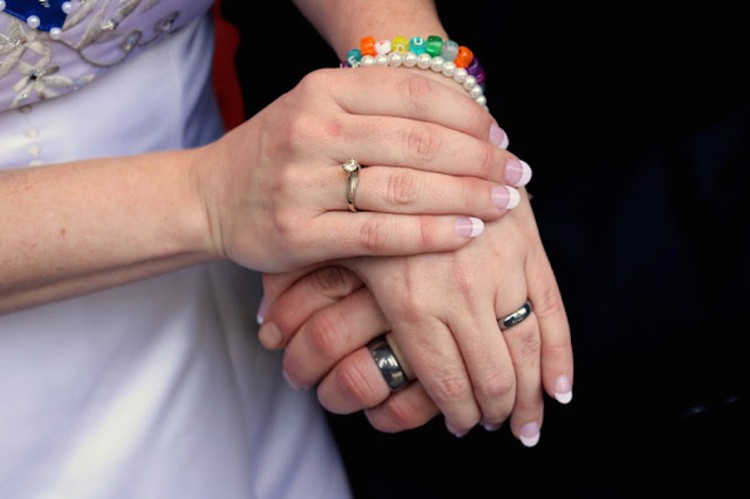In 2013, my husband won custody of his children (my stepson, “Little,” age six; my stepdaughter, “Middle,” age 7). Before they came to live with us, they endured a lot of early-childhood trauma and neglect, and they were soon diagnosed with reactive attachment disorder (RAD).
The most important part of their treatment plan involves therapeutic parenting. We use the SPACE model, which stands for “Safety, Supervision, Structure, Support while being Playful, Accepting, Curious, and Empathetic.” We do enforce consequences, but from an outsider’s perspective I’m sure it looks like we don’t. Therapeutic consequences are extremely understated. They aren’t rooted in fear, shame or guilt, and most consequences aren’t rewards-based. So, for example, if Little was throwing cars at the wall, I wouldn’t take his cars away. Instead, I would grab softer, more appropriate things to throw at the wall and say, “My, it sure does feel good to throw things when we’re mad, huh?” Later, he would patch the holes.
Some things require rewards-based consequences, and we try to be neutral when those come up. For example, if they have a horrible day full of meltdowns, they lose the right to stay up until bedtime and must go to bed early. To make it therapeutic, we avoid saying things like, “You’re going to bed an hour early because your behavior is awful! Maybe you will remember this before you decide to throw a huge fit!” Rather, we try to say something like, “Oh, it’s time for bed now. You are so tired. I want to make sure you’re have a good day tomorrow so you need a little extra rest!”
I don’t like parenting this way. It’s hard, tedious and exhausting, and I’m not very good at it. It’s hard not to lose my cool when my kid uses a paper clip to rip holes in her school clothes for the umpteenth time. Most days, every fiber of my being screams, “Punish them for this behavior, because the real world certainly will!” Sometimes, I listen to those fibers and dole out a punitive consequence.
Recently, after explaining some misdeed Middle and my response to her behavior, someone remarked, “It just seems like you’re not preparing them for the real world.”
And it’s true. Therapeutic parenting does not prepare our kids for the real world.
So…why do we parent this way when we know we aren’t preparing them for the real world? I mean, isn’t that the whole point of parenting?!
First, we have tried typical parenting methods and know they do not work. Sticker and reward charts are useless…Middle figures out how to manipulate them with an amazing competence, and Little doesn’t seem to care whether or not he gets stickers or rewards. Giving them positive attention and compliments only encourages them to act out, and punishing them by yelling or taking away toys seems to have no impact (I once removed every single item from the kids’ room and told them they had to earn their things back. This did not faze them…In fact, they enthusiastically helped me empty out their bedroom).
Second, we know why typical parenting methods don’t work. The trauma and neglect they encountered before they came to live with us actually altered their brains and brain chemistry. Enforcing punitive consequences isn’t going to rewire their brains. They aren’t lacking in a knowledge of right and wrong — they lack a secure attachment. This prevents them from understanding and building healthy interpersonal relationships. The only way to fix these issues is for us, as parents, to foster a healthy attachment bond with the children.
Building up a healthy attachment in my kids with a traumatic background is paramount in parenting them. They will not stop engaging in the negative behaviors associated with RAD until they feel safe in their environment, and the best way to help kids from traumatic backgrounds develop empathy is to use therapeutic, non-punitive techniques that show them they are loved and they are safe. These techniques, of course, do little to prepare kids for the harsh reality of the real world. But here’s the thing. If we stick with it and do our best, if a healthy attachment builds and becomes secure, eventually the kids will be able to handle more typical parenting methods and we will be able to move on to methods that prepare them for life outside of our home.
And I’m confident that we will get there. We’ve already seen so many improvements in my step-children since we started parenting with SPACE, and they heal a little more with every passing day. In fact, Middle recently made me a rainbow-colored bracelet that reads, “I love you.”

And I never take it off…ever.
So, to everyone who gets confused by our parenting methods or worries the kids will leave our home and buckle under the reality of life, I advise you to relax. We’ll prepare them for the real world eventually, but right now, we’re working on love instead.
Follow this journey on Trauma Mama Drama.

